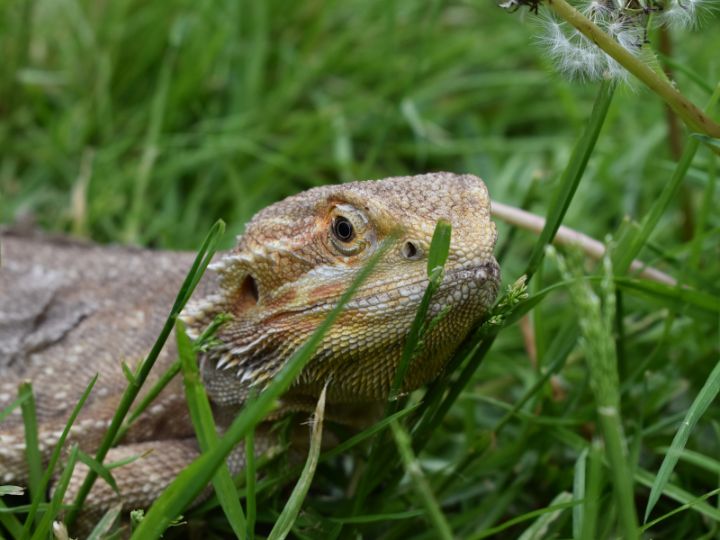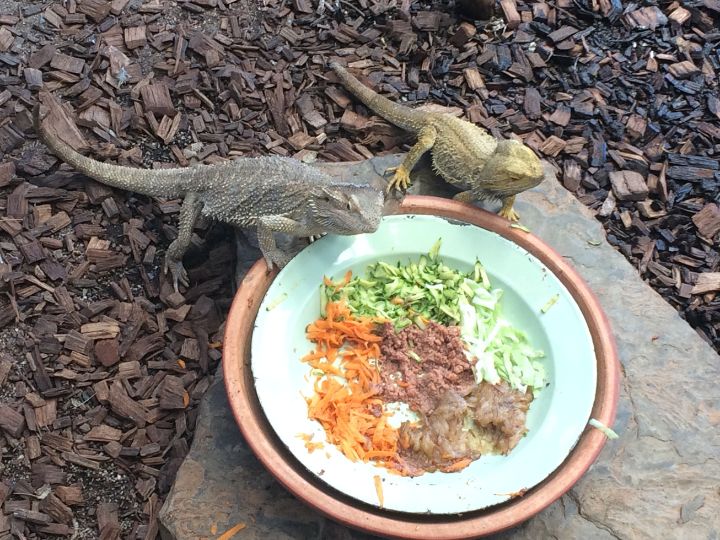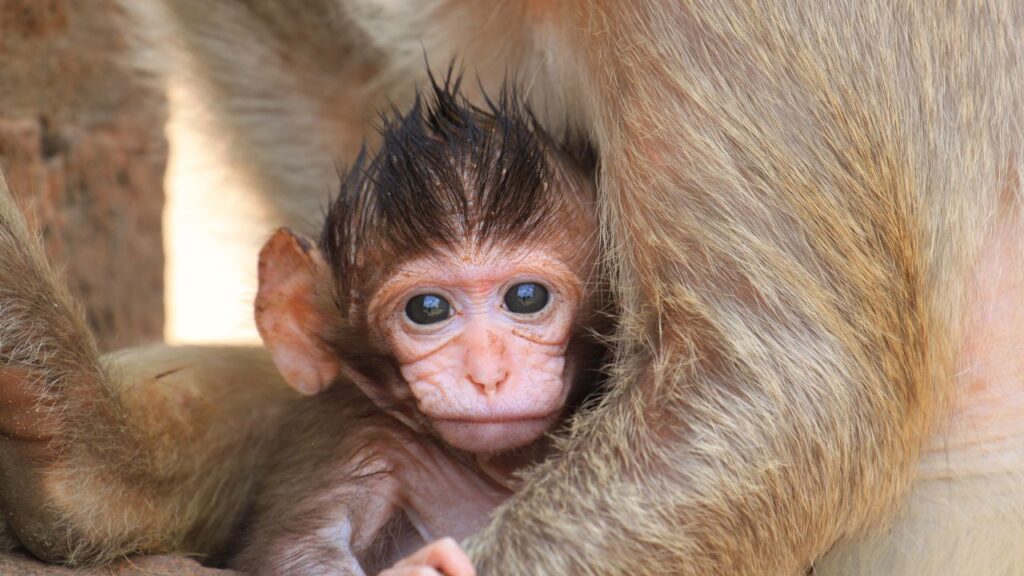Coconut, being a fibrous and high-fat fruit, may seem like a questionable choice for bearded dragons at first glance. However, when given in moderation, coconut can indeed be an occasional treat for these reptiles. The key is to ensure that the coconut is offered in small amounts, fresh, and without additives, to avoid potential risks and to maintain an overall nutritious diet for the bearded dragon.

Image Credit: Canva
Bearded dragons are popular pets for reptile enthusiasts, and their dietary requirements are an important aspect of their care. Owners are often curious about the potential treats they can offer to their scaly friends, and coconut is one such food source that may come to mind. Understanding whether bearded dragons can eat coconut may help in providing them with a varied and healthy diet.
One primary consideration when feeding bearded dragons is the balance of nutrients they receive from their diet. As omnivorous creatures, they consume both plant-based foods and insects, which means their dietary choices can be vast. In the quest to provide a balanced and appropriate feed, the suitability of treats like coconut becomes a crucial topic of discussion among bearded dragon owners.
- What Are Bearded Dragons?
- Understanding The Diet Of Bearded Dragons
- Defining Coconuts
- Can Bearded Dragons Eat Coconuts?
- Health Benefits Of Coconuts For Bearded Dragons
- Potential Risks Of Feeding Coconuts To Bearded Dragons
- Guidelines For Feeding Coconuts To Bearded Dragons
- Alternatives To Coconuts For Bearded Dragons
- Frequently Asked Questions
What Are Bearded Dragons?
Bearded dragons are medium-sized reptiles native to Australia. They are scientifically known as Pogona and are widely recognized for their appearance, which features a distinct “beard” of skin and scales under their chin. Bearded dragons are popular pets due to their friendly nature and easy maintenance, making them suitable for reptile enthusiasts and novices alike.
These reptiles are omnivorous, meaning they eat both plants and insects. In the wild, their diet typically consists of leaves, flowers, fruit, and various insects like crickets or ants. As pets, bearded dragons are commonly fed vegetables, fruits, and insects as a significant part of their captive diet.
Being cold-blooded, bearded dragons need external sources of heat to regulate their body temperature, which is why in captivity, they require a basking area with a heat lamp or a heat mat. Proper lighting is also crucial to their health, as they need ultraviolet (UV) light for vitamin D synthesis, aiding in calcium absorption and overall well-being.
In captivity, bearded dragons have an average lifespan of around 10 to 12 years, though proper care and nutrition can sometimes lead to a longer life. Providing the best possible care involves understanding their dietary needs, creating a suitable environment, ensuring they receive adequate lighting, and being attentive to their overall health.
Understanding The Diet Of Bearded Dragons
Bearded dragons are omnivorous reptiles, which means they consume both plant-based and animal-based foods. Their diet consists mainly of insects, vegetables, and fruits. A well-balanced diet is crucial for their overall health and wellbeing.
When it comes to insects, bearded dragons enjoy a variety of species, such as crickets, mealworms, and roaches. It is essential to provide them with the appropriate-sized insects to avoid choking hazards. In addition, it’s recommended to dust the insects with calcium and multivitamin supplements to ensure proper nutrition.
Vegetables and greens make up a significant portion of a bearded dragon’s diet, especially as they mature. Some of their favorites include collard greens, mustard greens, and dandelion greens. They can also consume small amounts of bell peppers, squash, and carrots. It is crucial to avoid feeding them vegetables high in oxalates, such as spinach and kale, which can inhibit their ability to absorb calcium.
Fruits should be offered occasionally, as they are high in sugar and can cause digestive issues if fed in large quantities. Appropriate fruit options include blueberries, raspberries, and figs.
Now, when it comes to coconuts, it is essential to consider their nutritional content and potential impact on bearded dragons. Coconuts are high in fat and low in nutrients essential for their growth and development. Therefore, feeding coconuts to bearded dragons is not recommended, as it can lead to obesity and other health issues. It’s essential to stick to a balanced diet, comprising insects, vegetables, and small amounts of fruit, to ensure optimal health for these reptiles.

Image Credit: Canva
Defining Coconuts
Coconuts are the seeds of the Cocos nucifera palm, which is native to the tropical regions of the world. They have a hard outer shell and a white inner flesh, which is commonly consumed in various forms. Coconuts are a significant source of nutrition and are widely used in food, cosmetics, and many other industries due to their versatility.
The coconut can be divided into several parts:
- Husk: The outermost layer, which is fibrous and used for making ropes, mats, and other products.
- Shell: The hard, protective layer that encloses the seed.
- Meat: The white, edible part of the coconut, which can be consumed fresh or processed into various forms such as milk, oil, and flour.
- Water: The clear liquid found inside the coconut, which is hydrating and rich in electrolytes.
Coconuts are known for their high nutritional value, providing vitamins, minerals, and healthy fats. They are particularly rich in compounds called medium-chain triglycerides (MCTs), which are easily absorbed by the body and have been linked to various health benefits. The nutrients present in coconuts include:
| Nutrient | Function |
|---|---|
| Potassium | Supports muscle function, heart health |
| Magnesium | Helps in bone development, nerve function |
| Iron | Essential for red blood cell production |
| Manganese | Supports metabolism, bone health |
| Phosphorus | Helps form bones, teeth |
| Zinc | Boosts immune function, wound healing |
In summary, coconuts are tropical fruits with a unique composition and numerous applications. They provide a range of nutrients and health benefits, making them a valuable addition to any diet. However, it’s important to note that some individuals may have an allergy or intolerance to coconut products, so it’s always best to exercise caution and seek medical advice if necessary.
Can Bearded Dragons Eat Coconuts?
Bearded dragons can eat coconuts, but it should be given in moderation. Coconuts provide a variety of nutrients that can benefit a bearded dragon’s overall health. Coconuts are rich in healthy fats, dietary fibers, vitamins, and minerals, all of which can contribute positively to a bearded dragon’s well-being.
However, coconuts also contain a relatively high percentage of saturated fats and sugar content. Excessive consumption of saturated fats may lead to obesity and related health issues in bearded dragons. Similarly, too much sugar in their diet can negatively impact digestion and cause health problems. It is essential to maintain a balance in their diet to avoid these potential issues.
When offering coconut to a bearded dragon, ensure that it is fresh and organic. Processed or sweetened coconut products are not suitable for their consumption. Additionally, it is best to remove the husk and grate the white part to make it easily edible for the reptile.
It’s important to note that a bearded dragon’s diet should primarily consist of a combination of vegetables, insects, and fruits. Coconuts should only be an occasional treat for supplementing their regular diet rather than a staple food. Introduce the coconut slowly and watch your bearded dragon for any signs of digestive discomfort.
In summary, bearded dragons can indeed eat coconuts, but it is crucial to offer it in moderation and as an occasional treat. Maintaining a balance in their diet is essential to ensure their overall health and well-being.
Health Benefits Of Coconuts For Bearded Dragons
Improvement In Metabolic Function
Coconut can provide a boost to the metabolic function of bearded dragons. The fatty acids found in coconut, specifically medium-chain triglycerides, are known to promote healthy metabolism. As a result, bearded dragons can maintain their energy levels and avoid sluggishness often associated with an improper diet. However, it is essential to offer coconut in moderation, as too much fat in a bearded dragon’s diet can lead to obesity and related health problems.
Enhancement Of Bone Health
Incorporating coconut into a bearded dragon’s diet can contribute to their bone health. Coconut contains trace amounts of essential minerals like calcium and phosphorus, which play a critical role in maintaining strong and healthy bones. Calcium, in particular, is necessary for bearded dragons’ skeletal structure, and a proper calcium-to-phosphorus ratio should be maintained to avoid health issues such as metabolic bone disease. While coconut should not be the primary source of calcium, it can provide a small supplementary boost to their overall bone health.
Increase In Hydration Levels
Hydration is crucial for bearded dragons, and offering coconut flakes can contribute to maintaining adequate hydration levels. The natural moisture content in coconut can help increase their overall water intake. This may be particularly beneficial for bearded dragons residing in environments with low humidity, where dehydration can become a concern. However, as coconut should not replace water as the primary source of hydration, it is essential to ensure that bearded dragons have access to fresh water at all times.
Potential Risks Of Feeding Coconuts To Bearded Dragons
Digestive Issues
Feeding coconuts to bearded dragons may lead to digestive problems. Coconuts contain a high amount of fiber, which can be challenging for these reptiles to digest. Consuming an excessive amount of fiber may cause impaction, bloating, and constipation in bearded dragons.
Moreover, coconuts have a high fat content that might not suit bearded dragons’ dietary needs. A high-fat diet can contribute to obesity and related health problems. It’s crucial to provide a balanced diet to ensure the well-being of these pets.
Taste Preference Issues
Another issue regarding feeding coconuts to bearded dragons is their taste preference. Bearded dragons have individual tastes and might not enjoy the flavor of coconut. Forcing a bearded dragon to eat something it dislikes can cause stress and may lead to a loss of appetite.
Introducing new foods should be done gradually, and it’s essential to monitor the bearded dragon’s reaction to new items in their diet. If a bearded dragon shows no interest in eating coconuts or seems to dislike them, it’s best to focus on other more favored food items.
Allergic Reactions
While rare, some bearded dragons may have allergic reactions to specific foods, such as coconuts. Signs of an allergic reaction could include:
- Sudden changes in behavior
- Swelling or inflammation
- Difficulty breathing
If a bearded dragon shows any signs of an allergic reaction, it’s essential to remove the suspected allergen from its diet and consult a veterinarian to address any concerns.
In summary, it is important to carefully consider the potential risks associated with feeding coconuts to bearded dragons. Not every food item may be suitable for their dietary needs, and their preferences may vary. Monitoring their response to new foods and providing a balanced diet can help maintain a healthy and happy bearded dragon.
Guidelines For Feeding Coconuts To Bearded Dragons
Preparation Of Coconut
Before feeding coconut to your bearded dragon, it’s essential to prepare it properly. Start by removing the outer husk and shell to expose the white flesh inside. Next, wash and thoroughly dry the coconut flesh. It is recommended to shred or grate the coconut into small, manageable pieces for the bearded dragon to easily consume.
Note: It’s important to use organic, pesticide-free coconuts to ensure the health and safety of your pet.
Quantity Recommendations
When feeding coconut to bearded dragons, moderation is key. Coconut should be considered as an occasional treat rather than a staple in their diet. A suggested serving size would be:
- Juveniles: 1/2 teaspoon of shredded coconut
- Adults: 1 teaspoon of shredded coconut
Frequency Of Feeding
As coconut is high in fat and low in essential nutrients, it’s best to limit the frequency of feeding. Offer coconut as a treat to your bearded dragon once every two weeks or as an occasional supplement to their regular diet. Maintaining balance and variety in the bearded dragon’s meals is crucial for overall health and well-being.
Alternatives To Coconuts For Bearded Dragons
Bearded dragons require an appropriate diet that consists of a balanced mix of vegetables, fruits, and insects. While coconuts are not a commonly recommended food item for bearded dragons, there are several safe and nutritious alternatives to coconuts that can be included in their diet.

Image Credit: Canva
Leafy greens are essential for bearded dragons. A few examples include collard greens, mustard greens, and dandelion greens. These vegetables are high in calcium and other essential nutrients, making them an excellent addition to their diet. Make sure to avoid spinach, beet greens, and Swiss chard, as they contain oxalates that can interfere with calcium absorption.
Colorful vegetables like bell peppers, carrots, and squash are also beneficial for bearded dragons. These vegetables are packed with vitamins and make their diet more appealing. Sweet potatoes and zucchini are other healthy options to include. However, it’s good to remember that moderation is key when offering these vegetables to bearded dragons as they contain higher sugar levels compared to leafy greens.
Safe fruits that can be offered occasionally as treats include blueberries, raspberries, strawberries, and apples. As fruits are generally high in sugar content, they should only make up around 5% of the bearded dragon’s diet to avoid excessive sugar intake.
Lastly, a crucial part of a bearded dragon’s diet is insects such as crickets, dubia roaches, and mealworms. These insects provide essential proteins and should make up about 50% of their diet, depending on the age and size of the bearded dragon. It’s essential to gut-load insects before feeding them to the bearded dragon to ensure proper nutrition.
By providing a balanced diet composed of leafy greens, colorful vegetables, occasional fruits, and insects, bearded dragon owners can ensure a healthy and happy life for their pets, without the need for coconuts.
Bearded dragons can consume coconut in moderation as a part of their varied diet. It offers them essential nutrients like healthy fats and dietary fiber. However, it should not be considered a staple food for these reptiles due to its high-fat content and low calcium-to-phosphorus ratio.
It is essential to serve coconut in small, appropriately sized pieces to prevent choking hazards. Additionally, incorporating it into a meal rotation and combining it with other nutritious vegetables and fruits will help ensure the bearded dragon maintains a well-balanced diet.
When offering coconut to a bearded dragon, remember that moderation is key. Overindulgence may lead to an imbalanced diet and potential health issues. In summary, coconut can be a beneficial and tasty treat for bearded dragons when provided responsibly and in moderation.
Frequently Asked Questions
Bear
Becky is a fervent wildlife enthusiast and pet care expert with a diploma in canine nutrition. Her love for animals stretches beyond the domestic, embracing the wild tapestry of global fauna. With over a decade of experience in animal welfare, Becky lends her expertise to OutlandishOwl through insightful articles, captivating wildlife information, and invaluable guidance on pet nutrition. Her work embodies a deep commitment to understanding the intricate lives of animals and a passion for educating others on sustaining natural habitats. Becky's hands-on conservation efforts and her knack for translating complex dietary science into practical pet feeding tips make her an indispensable voice for creatures great and small.



